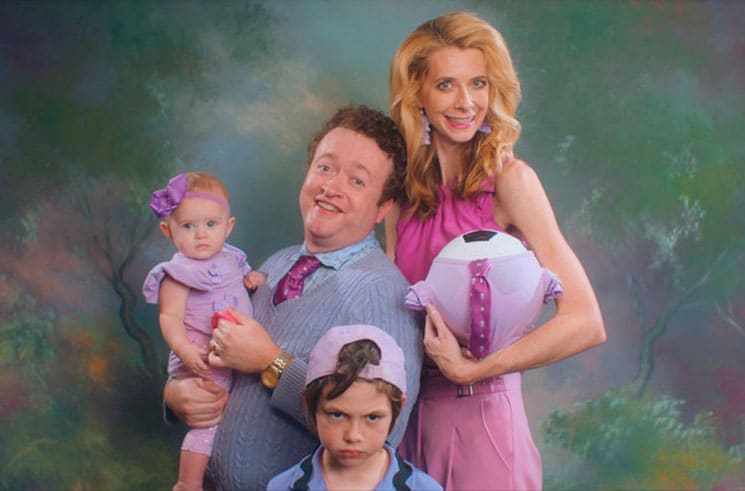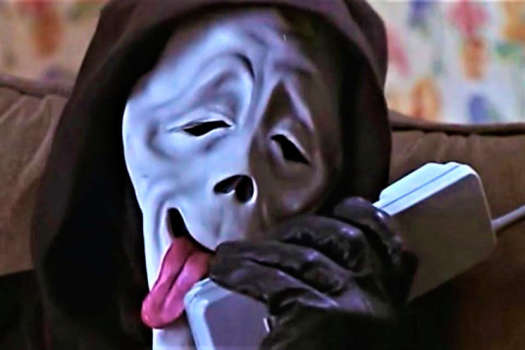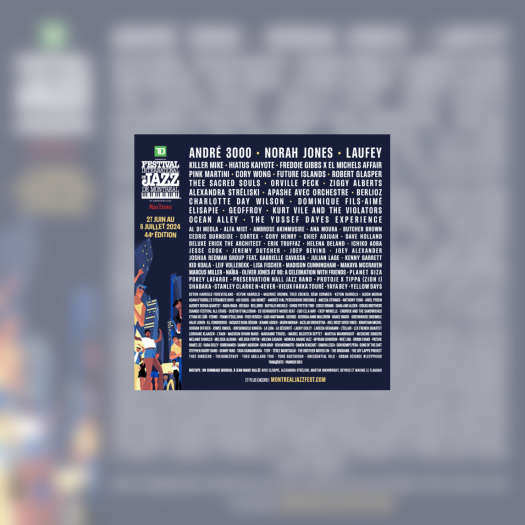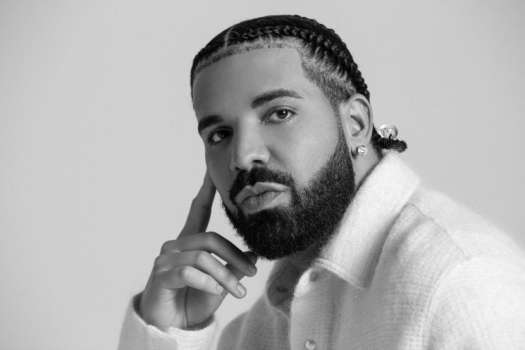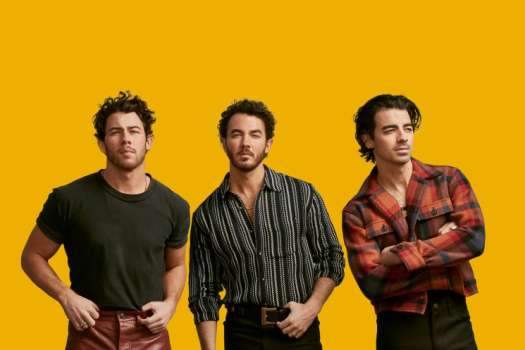The opening credits of Greener Grass linger on a fake smile — a quivering lip and braces. It's the image of perfect, middle-class suburbia, one that co-writer, co-director and star Dawn Luebbe crafted into an absurdist and satirical take on envy and competition in a lifestyle that's almost alien.
Dawn Luebbe and Jocelyn DeBoer, both veteran performers of the Upright Citizens Brigade Theatre, partnered together in 2015 to create Gulp Splash Productions, where their short film of the same name was created. It wasn't until the pair got to editing the director's cut of the 2016 SXSW award-winning short that, Luebbe explains, their directing bug for a feature kicked in. And what an insane comedy-horror mashup it turned out to be.
By many sources, Greener Grass has been solely labelled as a comedy. And while it is funny, it's also frightening, reminiscent of Halloween in its twisted voyeurism and imposing John Carpenter-esque score. For Luebbe and DeBoer, melding comedy and horror was natural.
"Jocelyn and I were so excited to do a comedy horror," Luebbe says. "There are actually so many similarities between comedy and thrillers in terms of tension and release, playing with timing and the way you take your audience for a ride."
As both children of the '90s who grew up in the Midwest suburbs, observations from their youth inspired Luebbe and DeBoer to craft a satirical script about suburban moms. For example, perfection is taken to the extreme and nothing is off-limits, not even teeth or family, as the cast don adult braces and characters get a divorce just because their friend suggests they do. Politeness is taken to even further extremes, with DeBoer's character, Jill, giving Luebbe's character, Lisa, her baby just because Lisa says she loves her. But behind all the absurdity, Greener Grass is really about the search for identity.
"We were so interested in exploring identity and how people have misplaced values," Luebbe says. "[Our characters] form their identity so much based on those around them — the house they live in, the clothes they wear, and the people they marry. That was a big part of how these characters make decisions, versus what's going on on the inside."
There's no doubt that Greener Grass has a female audience in mind, but this suburbia's residents more closely resemble the preteen characters of Disney Channel sitcoms. Characters that are, as Luebbe says, "cobbling together their identity and misplaced values that aren't at all genuine to who they actually are." Jill and Lisa, while best friends, are incredibly envious of one another; it turns sinister when one slowly, but cunningly, takes over the other's life. And just like the characters in the film, Luebbe points out that teenagers also look to outside influences and take pieces from them to form their identities.
"I think it really comes down to the insecurity that comes with trying to form your identity," she says. "And I think that when you're a teen, that's when, for the first time, you're trying to really separate yourself and figure out who you are, what's important, and it's really hard and scary to do that. While most people get [to figuring out their identity] by the time they're teenagers, our characters haven't."
Comparisons have been made to everything from a Saturday Night Live sketch, to Pleasantville, The Lobster and Stepford Wives. While they did have directorial influences like John Waters, and wrote the short film version while watching David Lynch's Twin Peaks, Luebbe says that a lot of their inspiration actually came from photography.
"We were inspired by the photographers Gregory Crewdson, William Eggleston, Garry Winogrand [and] Lee Friedlander," she explains. "These photographers have their own perspective on suburbia, which can be perhaps a bit funny, but also a bit dark."
And that's a great description for Greener Grass: a bit funny, but also a bit (very) dark. There are kids running around with knives, parents giving away their children, youngsters turning into animals, and there's also a serial killer on the loose. It's a wild ride, and that's just how Luebbe wanted it to be.
"When we set out to write this, we wanted the audience to have a wild ride and see something that was different from other movies," she says. "Jocelyn and I know the truth of what's the deeper meaning behind everything in the movie, but we're always so excited for people to come to their own conclusions about what the movie means to them."
And saying that Greener Grass is telling the audience that suburban moms are more frightening than Michael Myers wouldn't be a stretch.
Dawn Luebbe and Jocelyn DeBoer, both veteran performers of the Upright Citizens Brigade Theatre, partnered together in 2015 to create Gulp Splash Productions, where their short film of the same name was created. It wasn't until the pair got to editing the director's cut of the 2016 SXSW award-winning short that, Luebbe explains, their directing bug for a feature kicked in. And what an insane comedy-horror mashup it turned out to be.
By many sources, Greener Grass has been solely labelled as a comedy. And while it is funny, it's also frightening, reminiscent of Halloween in its twisted voyeurism and imposing John Carpenter-esque score. For Luebbe and DeBoer, melding comedy and horror was natural.
"Jocelyn and I were so excited to do a comedy horror," Luebbe says. "There are actually so many similarities between comedy and thrillers in terms of tension and release, playing with timing and the way you take your audience for a ride."
As both children of the '90s who grew up in the Midwest suburbs, observations from their youth inspired Luebbe and DeBoer to craft a satirical script about suburban moms. For example, perfection is taken to the extreme and nothing is off-limits, not even teeth or family, as the cast don adult braces and characters get a divorce just because their friend suggests they do. Politeness is taken to even further extremes, with DeBoer's character, Jill, giving Luebbe's character, Lisa, her baby just because Lisa says she loves her. But behind all the absurdity, Greener Grass is really about the search for identity.
"We were so interested in exploring identity and how people have misplaced values," Luebbe says. "[Our characters] form their identity so much based on those around them — the house they live in, the clothes they wear, and the people they marry. That was a big part of how these characters make decisions, versus what's going on on the inside."
There's no doubt that Greener Grass has a female audience in mind, but this suburbia's residents more closely resemble the preteen characters of Disney Channel sitcoms. Characters that are, as Luebbe says, "cobbling together their identity and misplaced values that aren't at all genuine to who they actually are." Jill and Lisa, while best friends, are incredibly envious of one another; it turns sinister when one slowly, but cunningly, takes over the other's life. And just like the characters in the film, Luebbe points out that teenagers also look to outside influences and take pieces from them to form their identities.
"I think it really comes down to the insecurity that comes with trying to form your identity," she says. "And I think that when you're a teen, that's when, for the first time, you're trying to really separate yourself and figure out who you are, what's important, and it's really hard and scary to do that. While most people get [to figuring out their identity] by the time they're teenagers, our characters haven't."
Comparisons have been made to everything from a Saturday Night Live sketch, to Pleasantville, The Lobster and Stepford Wives. While they did have directorial influences like John Waters, and wrote the short film version while watching David Lynch's Twin Peaks, Luebbe says that a lot of their inspiration actually came from photography.
"We were inspired by the photographers Gregory Crewdson, William Eggleston, Garry Winogrand [and] Lee Friedlander," she explains. "These photographers have their own perspective on suburbia, which can be perhaps a bit funny, but also a bit dark."
And that's a great description for Greener Grass: a bit funny, but also a bit (very) dark. There are kids running around with knives, parents giving away their children, youngsters turning into animals, and there's also a serial killer on the loose. It's a wild ride, and that's just how Luebbe wanted it to be.
"When we set out to write this, we wanted the audience to have a wild ride and see something that was different from other movies," she says. "Jocelyn and I know the truth of what's the deeper meaning behind everything in the movie, but we're always so excited for people to come to their own conclusions about what the movie means to them."
And saying that Greener Grass is telling the audience that suburban moms are more frightening than Michael Myers wouldn't be a stretch.
